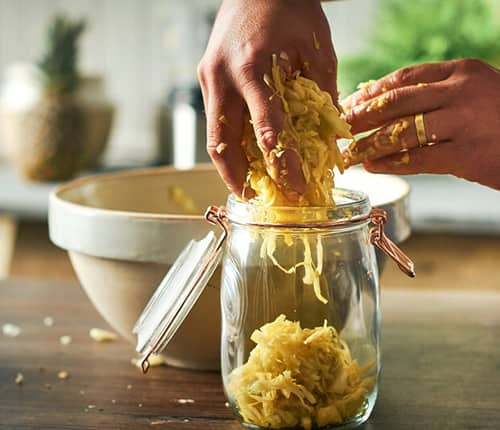Store food correctly
A simple way to cut down on the food waste at home is to check you’re storing your produce correctly and not causing it to go off prematurely. For foods with a labelled best before date, remember the date will only be accurate if you store the food according to the instructions on the label, be it in a cool dry place or in the fridge. Fresh items such as potatoes, onions and tomatoes should be kept at room temperature rather than in the fridge, while be careful what sits next to your bananas in the fruit bowl. Bananas emit ethylene gas while ripening which causes other fruit and veg to ripen more quickly. This can actually be handy if you want to speed up the ripening of an unripe avocado.

















